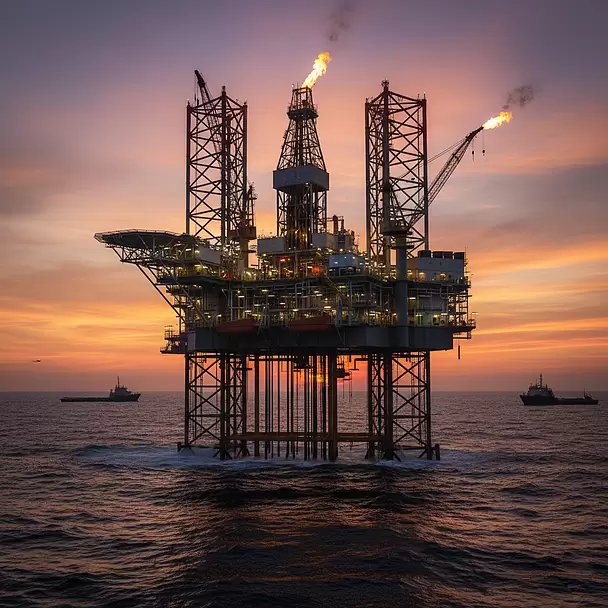Hydrocarbon extraction and LNG: a permanent threat with high costs for the country

Just days before the start of the COP30 international climate conference in Brazil, the government triumphantly announced agreements with oil giants for hydrocarbon extraction in the seas off Crete and the Ionian Islands, as well as a long-term commitment to import American liquefied natural gas (LNG) from 2030.
Just two years ago, at COP28, a historic agreement was reached to phase out fossil fuels, and at a time when the climate crisis is becoming a permanent state of emergency, backed by indisputable scientific data, our country has chosen to go in the opposite direction, turning its back on the future. Instead of moving away from fossil fuels, which have high environmental, economic, and social costs, it is heading toward decades of dependence, environmental risk, and economic regression.
Hydrocarbon extraction is documented as one of the most serious threats to marine ecosystems and rare marine life (e.g., blowholes, seahorses, dolphins, Mediterranean monk seals, sea turtles, and protected corals) in the Hellenic Trench, a super important marine ecosystem in the eastern Mediterranean. Seismic surveys, drilling, and extraction platforms cause widespread pollution, constant noise pollution, waste, and operational leaks, leaving behind permanently damaged ecosystems. This is a long-term cost that local communities will be called upon to bear.
At the same time, oil and gas extraction prevents any other sustainable activity: it undermines fishing, deters tourism, and ties up vast areas of sea, turning public natural resources into business “plots.” And all this in an climate of lack of transparency and accountability, especially since the regulatory mechanism is funded by the oil companies themselves, environmental impact studies are inadequate, and negotiations with companies remain secret.
Government promises of “cheap energy” are completely misleading. No one knows if there are commercially exploitable reserves, while full ownership of any hydrocarbons that may be extracted will be held by the companies themselves, as explicitly stated in the contract. Prices will therefore be determined by the markets, not by any public interest. The result is well known: they reap the profits, we reap the consequences. Society will pay for the pollution, emissions, instability, and higher energy bills, while profits will remain in the hands of oil companies.
This choice is misleading and distracts from the only real path to sustainability: investing in clean energy that is safe for natural ecosystems, energy self-sufficiency, and a fair transition for local communities. It is deeply contradictory to the commitments that the government itself made just a year and a half ago at the Our Ocean Conference 2024, when it assured that there would be no new concessions for offshore plots.
Beyond the political and legal dimensions, there is also a profound ethical issue: our debt to today’s children. On the occasion of this year’s COP30, just a few days ago, thousands of students from across the country sent letters to the government calling for bold commitments on climate change and received assurances from the Minister of the Environment that their messages would be taken seriously. The question that remains to be answered is simple: what kind of Greece will be leaving to them? A country trapped in oil or a society that invests in its future?
The country’s dependence on fossil fuels and, by extension, on oil companies is a source of geopolitical instability, permanent environmental degradation, and serious consequences for the economy and society. Period. Dependence on fossil fuels is not development — it is an economic, social, and environmental trap.
Real progress lies in clean energy, transparency, and intergenerational justice.